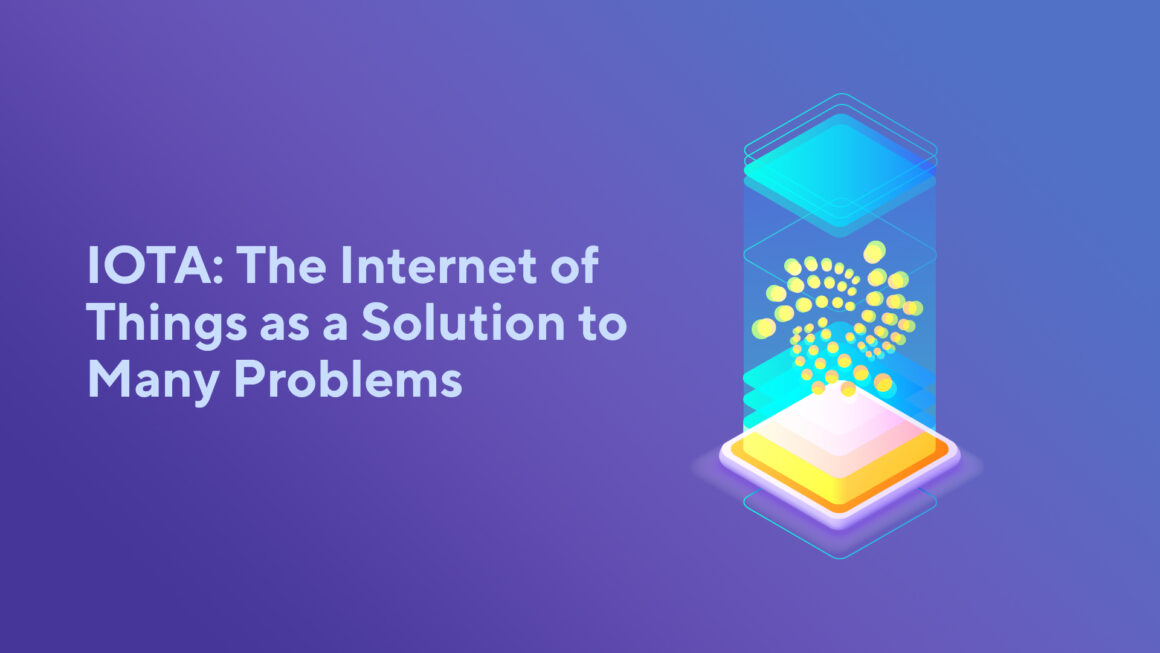In addition to Bitcoin, numerous other cryptocurrencies have already established themselves on the market. This is sometimes due to the less flexible use of Bitcoin. While Bitcoin is considered a reliable asset and is often compared to digital gold, other projects like IOTA can simplify and automate economic cycles. The IOTA forecast is increasingly positive among experts, which may indicate further growth.
So different cryptocurrencies can offer a solution for different problems. For example, Ethereum (ETH) was able to form a foundation for automated payments via the use of smart contracts . A large part of the decentralized financial system (DeFi) is based on such applications and thus enables a high level of security.
The IOTA project could also establish itself as one of the market leaders in the field of digital transactions. As of today, the currency is one of the largest by market cap. Many experts suggest that the increasing rate could be observed over the coming years.
The Internet of Things: Where is IOTA Used?
The Internet of Things is expected to make significant progress in many areas of industry. The information technology and communication sectors benefit from this. The aim of the infrastructure is to unite physical and virtual objects with one another. These are supposed to work together automatically.
The term Internet of Things (IoT) arose when the automatic systems for recording identities were created. In the context of the IOTA forecast, the objective of the Internet of Things stands out in particular.
IoT applications should be able to automatically record, process, and evaluate information and states from the real world. This data should be available in a network and serve various purposes. This includes maintenance work, error detection, usage behavior, and environmental conditions. This process turns out to be particularly difficult and requires a lot of computing power as well as artificial intelligence.
In addition to IOTA, numerous other projects are also working on the Internet of Things. A well-developed infrastructure for data and automated processes is an important issue, especially when it comes to the creation of smart cities.
Cars & Mobility
The steady growth of e-mobility creates new possibilities and technologies. In the future, numerous vehicles could communicate with one another independently and exchange information. This particularly includes autonomous driving in passenger and freight traffic.
All of these processes require a well-connected infrastructure for data. In order to guarantee security and a smooth flow of these processes, this information must be transmitted almost in real-time. IOTA could serve as the basic protocol for such applications and make many processes much easier.
Healthcare
Medicine can also benefit from decentralized technology such as IOTA. In times of the corona crisis, requirements that doctors and hospitals have to cope with are also increasing. A long-discussed solution to this would be consultation hours, which are held online. Consultations often don’t require a face-to-face meeting. However, security and data protection must always be guaranteed.
In addition, various customer data can be measured using sensors and computer chips. Blood pressure, body temperature, and other important functions can thus be processed via the Tangle and forwarded safely and anonymously. Patients can be continuously monitored and certain diseases can be detected at an early stage. The patient files are thus stored decentrally and can only be accessed with the patient’s consent.
Smart Cities & Smart Homes
The way we live also evolves in sync with the technology we use. As cities continue to grow rapidly, the urgency to use this space as efficiently as possible is also increasing. There are many factors to consider in urban planning, including wastes, environmental protection, energy, and infrastructure.
For example, the city of Taipei announced a collaboration with IOTA in 2018. The capital of Taiwan has 2.6 million inhabitants and would like to introduce a digital citizen ID in cooperation with BiiLabs.
Living itself could also change significantly due to IoT applications. So-called smart homes can ensure greater security, more living comfort and more efficient use of energy and resources. For example, sensors could automatically measure humidity in rooms and accordingly open windows for ventilation.

Leave a Reply